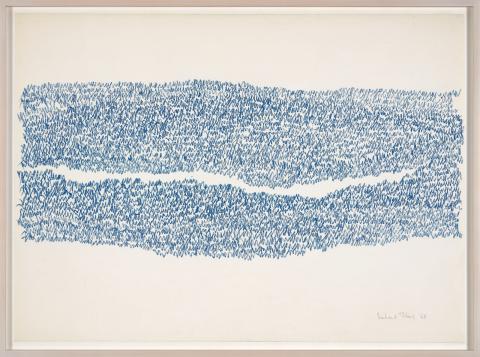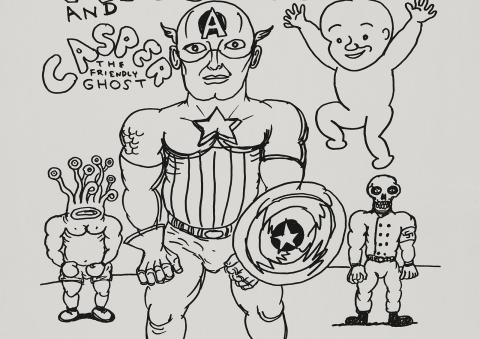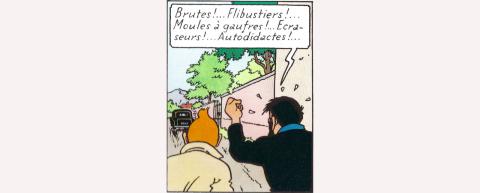-

A History of Legitimacy
In this podcast combined with a large body of images, Charlotte Laubard (HEAD – Genève, HES-SO) explores what she calls the ‘self-taught enigma.’ Multiform, this enigma questions the modes of art learning and artistic invention as much as the criteria of legitimacy that govern art history. In particular, Laubard compares the trajectory of artists who have been subjected to various labels such as ‘brut,’ ‘outsider’ and ‘naïve’ with that of avant-garde artists from the 1950s who had to implement a form of unlearning in order to break with tradition on the one hand, and creators from non-Western spheres and learning environments on the other.
-

Auto-reverse Learning
Portrayed as an absolute oddity, both solitary and providential, the American singer-songwriter and cartoonist Daniel Johnston (1961-2019) has often been labelled an outsider, ‘naïve’ and ‘crude,’ by artistic historiography. Based on readings of his work that are in turn mundane, hagiographic and biographo-pathological – and accompanied by his songs in the background – Christophe Kihm explains how Johnston embodies a certain myth of the self-taught genius, in contrast to the values of a pop music considered inauthentic and commercial.
-

The Self-Taught Enigma, from the Making of the Work to its Recognition
By evoking a series of discoveries made during her research on 'informal' or 'unformatted' learning, Hélène Bézille explores the socio-historical construction of the figure of the autodidact. She observes in particular how this dual figure, oscillating between disqualification and recognition, alienation and emancipation, gained legitimacy from the 1960s onwards with the construction of the self-made man and the growing 'artification' of what we see as radical singularities.